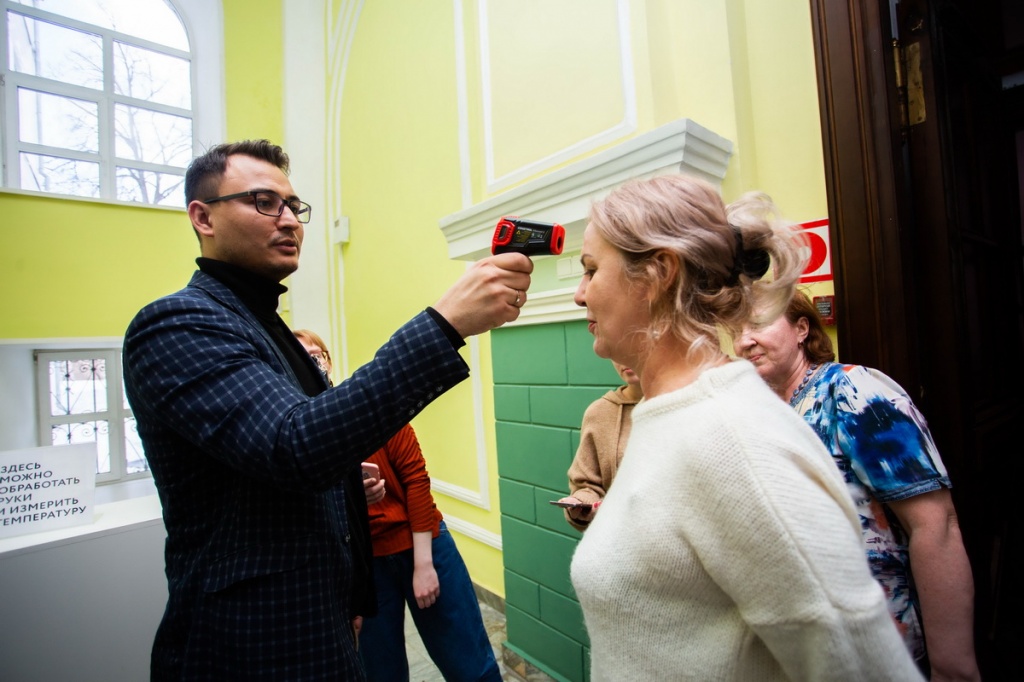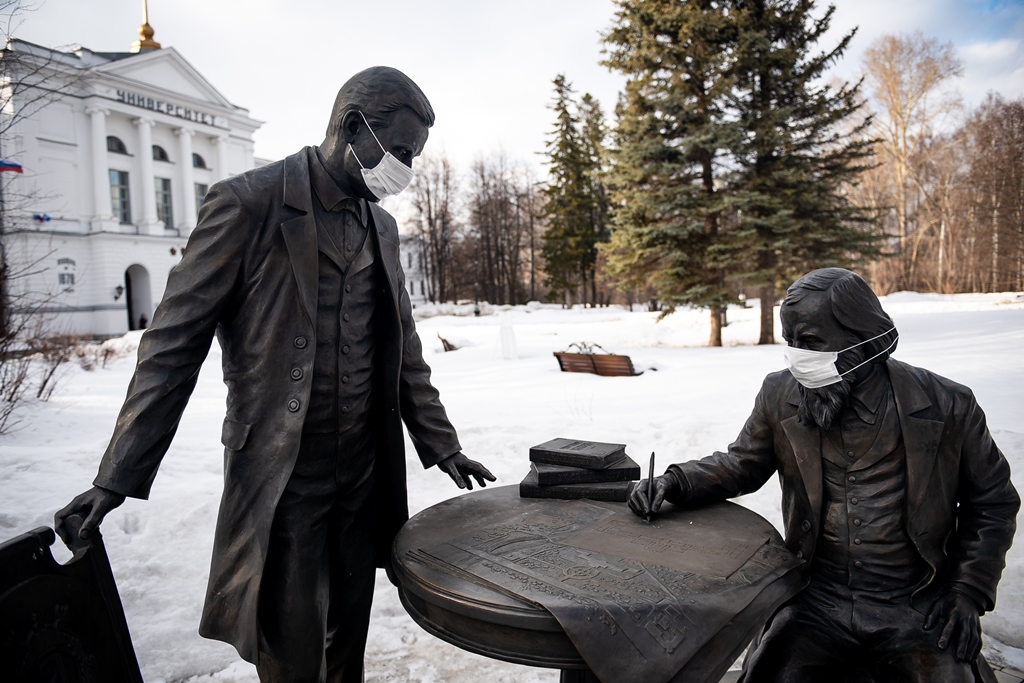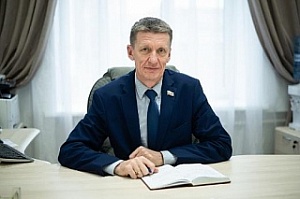The Tomsk Region is on high alert due to coronavirus infection, and various measures are being taken at the university to prevent the spread of COVID-19 and also influenza and SARS. Sergey Kulizhskiy, TSU Vice-Rector for Social Affairs, spoke about how the university is living in the new conditions, what problems have arisen, and why personal precautions are more effective than external ones.
What difficulties did we have?
- The university has never experienced such a situation. This is probably the first incidence of this kind in many decades. There have been periods of bird flu, but the university has never been on high alert due to infection.
In the new conditions, first of all, organizational problems arose, for example, how to cancel more than 20 events at the Culture Center when tickets had been sold; how to close pools and gyms; how to ensure compliance with sanitary standards; how to keep operational records of more than 1,000 students leaving the dormitory, and much more.
The second point is related to anxiety. This psychological factor is not critical, but rather painful. Hence the multiple appeals of parents and students. I would like to note that the Council of Rectors keeps abreast, and in online mode it exchanges information and best practices.
Sometimes what is required is very categorical. For example, the disinfection of buttons on keyboards, elevators, and door handles after each time someone has touched them. The university is doing everything possible to solve technical and organizational issues, and it is necessary to jointly eliminate the problems that arise. Of course, everyone has the right to demand increased measures for disinfection, but you should also take care of your health yourself - take a disinfectant wipe on the counter at the entrance and wipe the elevator button before pressing it.
How has the dormitory policy changed?
- The rules of living in a dormitory are based on understanding the importance of the norms that are dictated by specialists. In general, the dormitory is living its usual life, but now those not living in them are forbidden to visit the dormitories. For their safety, parents and friends cannot come to visit.
In each dormitory, there is a place at the entrance where there are disinfectants for hands and surfaces and dry and wet wipes, so that students use them. If they are not available, you need to promptly inform the dormitory supervisor.
I believe that students need to be more responsible for their health: measure their temperature in the morning and evening, and with the very first symptoms (increased temperature, coughing, tickling throat, sneezing, and lack of air) urgently call the medical numbers on the university’s website and contact the university hospital.
By the way, if a student has signs of illness, the dormitory staff must call a doctor, and in case it will be needed, we have equipped isolation rooms in dormitories № 3 and №6, where we can relocate a student on the recommendation of doctors.
How do cleaning companies work now?
- As an additional measure, we have increased the quality and number of cleanings.
In the corridors, in the kitchens, in showers, and in other common areas, cleaning is carried out using chlorine-containing preparations; handrails and handles are processed every two hours. However, it should be remembered that cleaning staff work only outside of personal rooms. Inside the room, students themselves must maintain order - carry out wet cleaning, ventilation, and other tasks.
However, if you see that the cleaning is carried out carelessly, then fix it, contact the dormitory supervisor or the directorate of the campus, and we will solve the problem.
How is symptom control organized?
- TSU managed to purchase noncontact devices for measuring temperature, and they are in every dormitory and building. For example, in the main building at both exits, it is possible take one’s temperature. In dormitories, staff and volunteers walk around the rooms and offer to check temperatures.
But it should be noted that the device is quite sensitive, and if you measure the temperature immediately upon returning from outdoors, it can show a lower surface temperature of this part of the body. Not because the device is faulty, but because of the condition of the person at this time. Therefore, we recommend that you wait a bit and only then take measurements.
What do volunteers do?
- Understanding the importance of the situation, the university turned to students for help, and many responded to become volunteers. The volunteers perform various tasks, for example, convincing students of the need to observe personal hygiene rules. Or they inform students how they can responsibly decide to leave the dormitory, because using public transport, in crowded places, can lead to unpredictable consequences.

How is food organized?
- You need to understand that the number of students in buildings has decreased, and catering outlets are experiencing financial problems. For this reason, the large dining room was closed in the main building and in building No. 6.
We have the opportunity to eat in the cafe "Kafedra" and "Minute" or contact the "Food Island", where you can make a reservation.
This situation will continue until the removal of the special regime.
What questions are most often addressed to you?
- As a rule, students and their parents and relatives directly contact me. People are usually concerned about an increased number of disinfection measures and living in dormitories.
Often you have to explain how the work at the university is going. For example, you have quarantine, but why do people freely go back and forth, why are people in buildings? To this, I reply that the current activities of the university are unlimited. The form of obtaining knowledge for students has changed and preventive measures have been strengthened. Everything else is in working mode.

What else needs to be done?
- The ideal option is to reach every student and staff member and explain their possible contribution to preventing the spread of infection. This is very difficult to do with a small number of full-time staff members without including supervisors, curators, heads of departments and laboratories, deans, and everyone related to the university.
I emphasize again that sometimes personal precautions are more effective than external ones. I would like to note that from a social point of view, the high-readiness regime will pass. But at any time, impartiality, mutual assistance, and openness - they must be preserved because it is precisely these qualities that distinguish a real university team.

